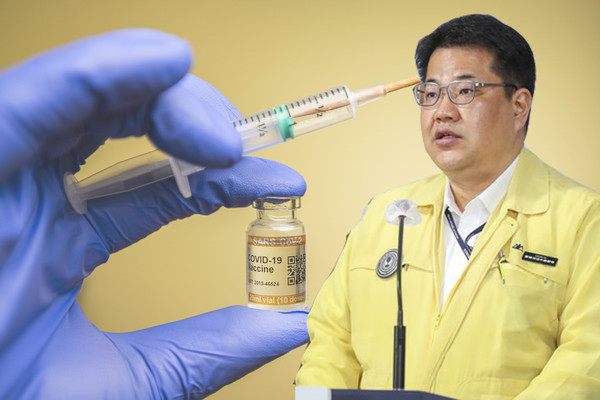Experts are increasingly criticizing the health authorities for failing to respond to the spread of Covid-19 virus variants.
Vaccine rollouts are speeding up, but the government is trying to pop the champagne too early, they said.
The government recently announced that it would waive 14-day quarantine for people who have been fully vaccinated against Covid-19 overseas from July 1, except for those coming from countries with major outbreaks or variants.
However, the U.K. and India were out of the government’s list of the countries with variants.

Not only India but the U.K. is suffering a spike in Covid-19 cases with the spread of the Delta variant, first identified in India. In the U.K., the Alpha variant is becoming powerful, too.
Son Young-rae, an official at the Central Disaster Management Headquarters, said the government did not designate the U.K. as a risky country because the government deemed the British vaccination program strong enough to block the virus.
“We don’t have sufficient scientific evidence for the variant in India. We will keep tracking overseas evaluation trends, and if we have more clear results, we will consider whether to include India in the list of risky countries,” he said.
The government announced the plan for the exemption of quarantine for travelers inoculated with a Covid-19 vaccine on Sunday, but the decision did not reflect the opinions of health experts.
Earlier on Friday, healthcare professionals strongly opposed the plan to allow people from India and the U.K. to skip the 14-day quarantine at a meeting of the advisory group under the Korea Disease Control and Prevention Agency (KDCA).
However, the KDCA reportedly ignored the experts’ opinion, although none of the experts who attended the meeting supported the government’s plan.
Infectious disease experts said the government was easing quarantine measures too early amid the fast pace of local vaccination.
“They are intoxicated with the rapidly rising Covid-19 vaccination, and they became unable to make a sharp judgment. They excluded India and the U.K. from countries with variants for senseless reasons,” a professor at a university hospital said.
Eom Joong-sik, an infectious disease professor at the Gachon University Gil Medical Center, noted that although the British vaccination rate was higher than that of Korea, the U.K. saw a surge in new Covid-19 cases due to the spread of the India variant.
“Over 60 percent of the U.K. population has received at least the first dose of a Covid-19 vaccine, but new daily cases are hitting 7,000 in the U.K.,” Eom said.
The spread of the India variant among unvaccinated people became serious trouble in the U.K., he added.
“Korea should raise the vaccination rate first and ease quarantine later. Not doing so could threaten the vaccination program,” he said.
Korea’s vaccination rate is only about 20 percent, and relaxing virus curbs in July will make it difficult to control the pandemic, Eom went on to say.
Lee Jae-gab, a professor of the Infectious Disease Department at Hallym University Kangnam Sacred Heart Hospital, warned that easing quarantine was too early, compared to the low vaccination rate.
Although the government said it excluded India from the countries with variants because of insufficient data, this is why the government should “wait for a little longer,” Lee said.
Even people who are fully vaccinated are not protected from Covid-19 100 percent, he said, adding that the U.K. and Israel took the first easing of quarantine when their vaccination rates surpassed 40 percent.
“Young people have not even started getting vaccinated, but the government is trying to ease virus curbs in places they frequent,” Lee said. “Korea had the second Covid-19 outbreak when it was proud about ‘K-quarantine’ after the ending of the first Covid-19 outbreak. We could face a similar situation.”

